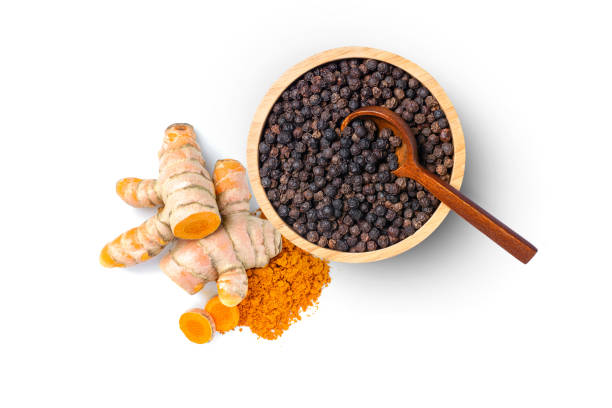Health Benefits of Turmeric and Ginger
The bright yellow spice that gives curry its characteristic color may improve hay fever symptoms, reduce triglyceride levels and help prevent heart disease. It also has anti-inflammatory properties and boosts immunity.
The key to turmeric’s healing powers is the compound curcumin, which has antioxidant and antimicrobial properties. It is recommended to take turmeric in combination with black pepper, which increases its absorption by up to 2000%.
Anti-inflammatory
Turmeric and ginger have anti-inflammatory properties that help improve a range of health conditions. Both are rich in a compound called curcumin, which helps fight oxidative stress and reduce inflammation. Turmeric can also reduce pain caused by inflammatory conditions like arthritis and colitis. According to a 2021 study in Frontiers in Pharmacology, turmeric may also boost levels of the brain hormone brain-derived neurotrophic factor (BDNF), which promotes cell growth and wards off degenerative diseases.
However, curcumin’s low bioavailability limits its effects on the body. This is because the digestive process breaks down the beneficial compounds and they are quickly excreted. A substance in black pepper, called piperine, can increase curcumin’s bioavailability by 2000%. Adding this spice to your diet or taking it in supplement form is the best way to maximize its benefits.
Be sure to talk to your doctor before you use turmeric in medicinal forms or add it to your diet. It can strengthen the effect of blood thinners, such as warfarin (Coumadin) and clopidogrel (Plavix), so it should be avoided by people on those medications.
Anti-cancer
Curcumin, the active ingredient in turmeric, appears to have powerful anti-cancer effects. It may protect against cancer by lowering inflammation and inhibiting the growth of tumors. It also may improve the effectiveness of chemotherapy drugs. However, most of the research on this has been done on lab animals or in cell studies. More study is needed to see if it works in people.
Turmeric and curcumin may help prevent some types of cancer, including prostate, breast, and colon cancers. They might also help reduce the risk of developing cancer by preventing the growth of new blood vessels that feed tumours. They might also prevent the spread of cancer by blocking an enzyme that breaks down tissue.
Small studies suggest that taking turmeric supplements might lower your cholesterol and triglycerides. It might also help ease arthritis symptoms. The antioxidant properties of turmeric might even protect your brain against degenerative diseases like Alzheimer’s by increasing levels of a protein called brain-derived neurotrophic factor.
Boosts immunity
Turmeric’s anti-inflammatory properties may help reduce symptoms of arthritis and other joint disorders, colitis, and allergies. It also has a strong antibacterial and antifungal action.
The active ingredient in turmeric is called curcumin, a natural polyphenol. Curcuminoids have many biological effects, including reducing inflammation and inhibiting cancer cell growth. They work by down regulating chemical mediators like NFkappaB and changing their signalling pathways. This helps lower the production of pro-inflammatory cytokines and decreases oxidative stress, which has been linked to inflammation, diseases, and aging.
Unfortunately, turmeric’s beneficial compounds are not easily absorbed by the body due to their poor bioavailability. However, combining turmeric with black pepper can increase its absorption by 2000%. The best way to get the most benefit is to include turmeric in whole food forms, such as kacchi haldi (turmeric with ghee), curry, or chutney. You can also take turmeric supplements but check with your GP first before making major changes to your diet or adding dietary supplements.
Reduces pain
Turmeric is a natural pain reliever with anti-inflammatory properties. It helps relieve arthritis pain by lowering inflammation and inhibiting proinflammatory enzymes. In addition, it boosts immunity to prevent chronic conditions from developing. However, it is important to consult a medical professional before adding any supplements or changing your diet. Turmeric can interfere with blood-thinning medications and can cause stomach upset in some people.
It can also interact with diabetes medication, antacids and some antibiotics. However, it can be an excellent option for those with chronic inflammatory diseases, such as ulcerative colitis and rheumatoid arthritis. Taking turmeric can help ease symptoms of the disease and prolong remission.
Curcumin, a compound in turmeric, reduces chronic pain. Several studies have shown that it is similar in effectiveness to NSAIDs in treating osteoarthritis. Turmeric can be taken in the form of tea or supplements. Turmeric supplements have standardized doses of curcumin. Mix it with milk or a dairy-free alternative, honey and black pepper to enhance its absorption.



